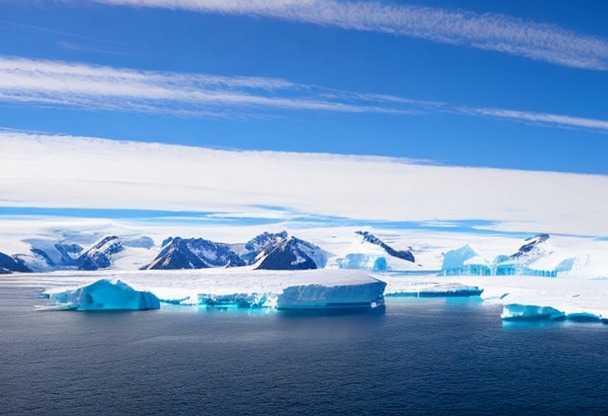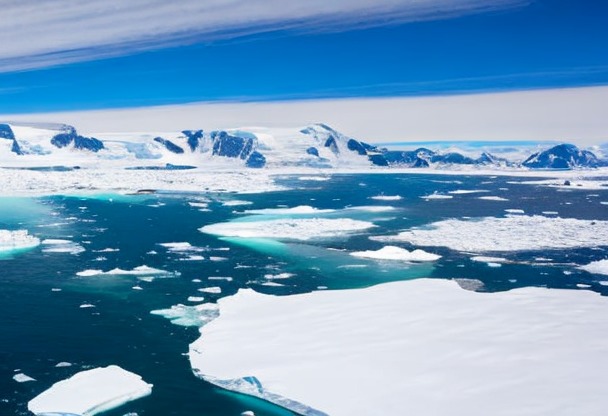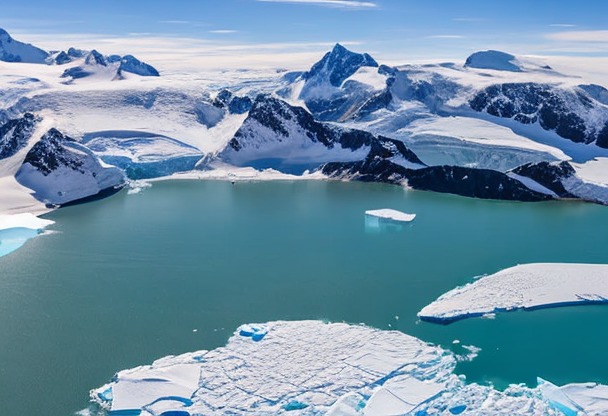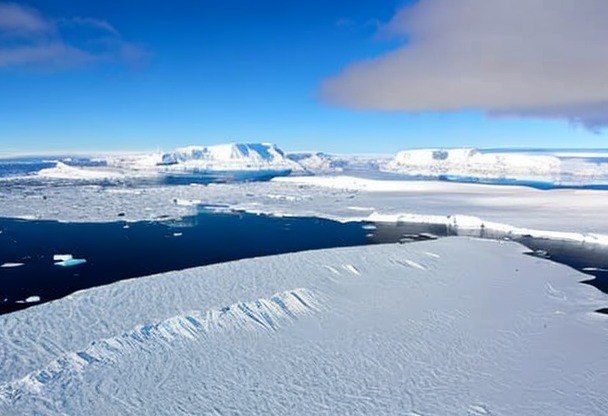Best time to travel to Antarctica
Choosing the right time for your trip to Antarctica can make all the difference. It's important to consider weather elements, seasonal events and busy tourist periods to maximize your travel experience.

Location
Climate
When to go to Antarctica?
The first question to ask when planning a trip to Antarctica is when is the best time to go. That's right, weather conditions and wildlife vary greatly with the season.Southern summer: peak season in Antarctica
The austral summer, which runs from November to March, is generally considered the best time to visit Antarctica, due to milder temperatures and greater accessibility to tourist sites. During this period, temperatures oscillate between -5 and +5°C. Here are some of the advantages of a trip to Antarctica during the austral summer:- Better access to tourist sites thanks to melting ice
- Less extreme temperatures for outdoor activities
- Presence and observation of wildlife, including penguins, seals and whales
- Longer days offer more time to explore the continent
Arctic winter: the low season in Antarctica
On the other hand, the austral winter, which runs from April to October, is a less favorable time to visit Antarctica. Temperatures can drop to -50°C, and weather conditions are often extreme, making outdoor activities difficult. In addition, wildlife observation is less favourable during this period.Major cultural events in Antarctica
Although Antarctica is first and foremost a continent of scientific research, there are a few major cultural events to attend during your stay:- The Antarctic Marathon Antarctica: every year, runners from all over the world gather on King George Island to take part in the Antarctic Marathon and Half Marathon. This unique event offers an unparalleled sporting experience in an exceptional setting.
- Antarctic Music and Science Festival Antarctica: created by researchers and artists living in Antarctica, this festival offers concerts, lectures and workshops on scientific research on the continent.
Public holidays in Antarctica
There are no specific public holidays for Antarctica, as the continent is governed by an international treaty involving several countries. However, the various scientific bases present on the continent generally celebrate the public holidays of their home countries.Low and high season in Antarctica
The ideal time to travel to Antarctica varies according to your tastes and expectations. To help you choose the best time for your trip, here is some additional information on low and high season periods:Low season: April to October
As mentioned above, the low season in Antarctica coincides with the austral winter. During this period, weather conditions are often extreme and wildlife less visible. However, some travelers voluntarily choose to leave during the off-season to take advantage of lower rates and a more intimate experience, away from the tourist crowds.High season: November to March
The peak season in Antarctica is the austral summer, when weather conditions are milder and access to tourist sites easier. It's also the best time to observe the local wildlife.Insurance

Your credit card does not cover you in all situations, that is whyIt is essential to take out insurance before you leave to avoid any unpleasant surprises. If you need to see a doctor or be hospitalized, in some countries, medical costs are very high and you will then find yourself having to pay several thousand euros.
Our partner Chapka Insurance proposes the contract CAP ASSISTANCE 24/24 with many essential guarantees.


Flights

Your flight has been cancelled or delayed ?
You may be eligible for a compensation of up to €600 ! For this, lawyers are responsible for handling your claim with the airline and are only paid when the reimbursement is effective.
In conclusion, no financial risk for you, only advantages!
Constantly growing tourism
Over the past few decades, the number of tourists visiting Antarctica has grown considerably. Between 1990 and 2019, the number of visitors rose from less than 5,000 to almost 56,000 a year. This figure continues to rise, not least thanks to the popularity of cruises to the White Continent.Tourists by nationality
Tourists to Antarctica mainly come from the United States, closely followed by China. Here's the breakdown of nationalities for the 2018-2019 season:- UNITED STATES : 33 %
- China : 16 %
- Australia : 11 %
- United Kingdom : 7 %
- Germany : 7 %
Most popular visas for Antarctica
The process of obtaining a visa to visit Antarctica can vary according to the nationality of the applicant and the type of stay planned. However, some visas are particularly popular with travelers and researchers.Tourist visa
Most people who visit Antarctica do so as tourists. To do so, it is necessary to obtain a tourist visaissued by the country of departure or stopover. As cruises are the preferred means of transport for visiting Antarctica, tourist visas are often linked to regulations specific to the maritime sector.Research visa
As Antarctica is a popular destination for scientists and researchers, another popular type of visa is the research visa. This allows researchers to carry out scientific work on the continent for a fixed period. Issuance of this visa generally requires presentation of a research project and prior approval from the relevant authorities.Environmental impact of Antarctic tourism
The rapid development of tourism in the Antarctic raises questions about its sustainability. environmental impact. Human presence and tourism activities can have an impact on this particularly fragile region.Marine pollution and plastic
Cruises are the main means of transport to Antarctica. However, they are also responsible for a significant proportion of marine pollution. Sewage discharge, plastic waste production and greenhouse gas emissions all contribute to the deterioration of the Antarctic ecosystem.Disturbance of local fauna
The passage of ships and the presence of humans on the mainland can disturb local wildlife, particularly birds and marine mammals. Penguin colonies and seals are particularly vulnerable to disturbance caused by tourism.Climate change risks
It is important to note that Antarctica is particularly sensitive to the effects of climate change, and rising temperatures could lead to melting ice and the disappearance of certain endemic species.

